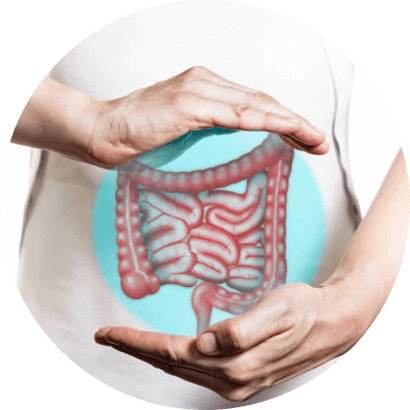
What is Anal or Rectal Prolapse?
Anal or rectal prolapse occurs when the rectal tissue protrudes through the anus due to weakened muscles and ligaments supporting the rectum. This can result in the rectum collapsing or falling out of its normal position.
Common Signs and Symptoms
Signs and symptoms of anal or rectal prolapse include
- Protrusion of Rectal Tissue: The noticeable protrusion of reddish or pinkish tissue from the anus, often during bowel movements or with straining.
- Discomfort or Pain: Patients may experience discomfort, pain, or a feeling of pressure in the anal or rectal area.
- Bowel Dysfunction: Rectal prolapse can lead to difficulty with bowel movements, including constipation or incomplete evacuation.
- Bleeding or Mucus Discharge: Bleeding from the rectum or mucus in the stool may occur.
Causes of Anal or Rectal Prolapse
Several factors contribute to anal or rectal prolapse, including
- Weakness of Pelvic Floor Muscles: Damage or weakness in the muscles and ligaments supporting the rectum.
- Chronic Constipation: Straining during bowel movements due to chronic constipation increases the risk.
- Ageing: Natural ageing processes can weaken pelvic floor muscles.
- Childbirth Trauma: Trauma during vaginal childbirth, particularly with forceps or vacuum extraction, weakens pelvic floor muscles.
Treatment for Anal or Rectal Prolapse
Treatment options for anal or rectal prolapse vary depending on the severity of the condition and may include:
- Lifestyle Modifications: Dietary changes to increase fibre intake and stay hydrated can help alleviate constipation. Pelvic floor exercises, such as Kegel exercises, can strengthen the pelvic muscles and provide support to the rectum.
- Medications: Stool softeners or laxatives may be prescribed to relieve constipation and reduce straining during bowel movements. This can help alleviate symptoms and prevent further prolapse.
- Surgical Intervention: For more severe cases, surgical options may be necessary. Procedures may include:
- Rectopexy: This involves anchoring the rectum to the surrounding tissue to prevent further prolapse.
- Resection: In some cases, a portion of the rectum may be removed if it is significantly damaged.
- Pelvic Floor Repair: Strengthening the pelvic floor muscles may also be performed during surgery to prevent recurrence.
Recovery Period
Recovery depends on the type of treatment chosen. For surgical repair, patients may need to avoid heavy lifting and strenuous activities for several weeks. Full recovery can take weeks to months, during which a modified diet and activity regimen is often recommended. Follow-up visits are crucial to monitor progress and ensure proper healing.
For more information or to schedule a consultation with Dr. Mouhsen Al Hosein, contact today.
FAQs
What are the risk factors for anal or rectal prolapse?
Risk factors include chronic constipation, ageing, obesity, and a history of pelvic surgeries or childbirth trauma.
How is anal or rectal prolapse diagnosed?
Diagnosis typically involves a physical examination, during which the doctor may ask the patient to bear down to observe the protrusion of rectal tissue.
Can anal or rectal prolapse recur after treatment?
While surgery can be highly effective, there is a possibility of recurrence, mainly if contributing factors, such as chronic constipation, are not addressed.
Are there any at-home treatments I can try?
Yes, increasing fibre intake, staying hydrated, and performing pelvic floor exercises at home can help manage symptoms and prevent the condition from worsening.
When should I seek medical attention?
Seek medical attention if you experience severe pain, significant bleeding, or if the prolapse becomes irreducible (unable to be pushed back in).
Is surgery the only option for severe prolapse?
While surgery is often the most effective treatment for severe prolapse, some patients may benefit from conservative measures, depending on individual circumstances.
What can I expect during recovery from surgery?
Patients can expect some discomfort and may be advised to follow a specific diet to ease bowel movements, along with avoiding heavy activities for a period of time.
How can I prevent anal or rectal prolapse?
Preventive measures include maintaining a healthy diet rich in fibre, staying hydrated, avoiding straining during bowel movements and practising pelvic floor exercises.
BOOK APPOINTMENT


